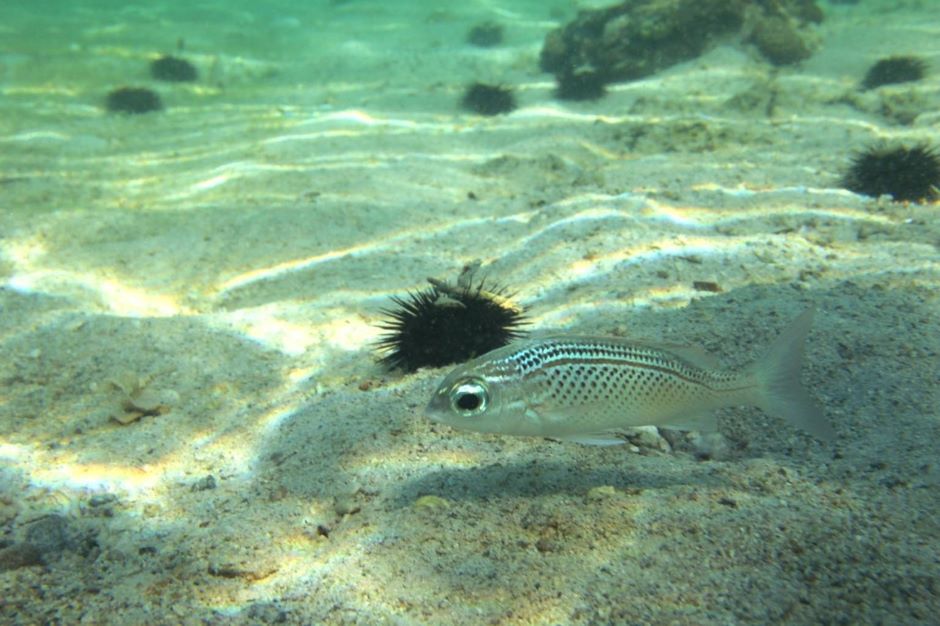Climate Change Altering Fish Distributions
 (Credit: João Pacheco via Pixnio, Public Domain)
(Credit: João Pacheco via Pixnio, Public Domain)Fishing quotes and industrial regulations were established decades ago and, at the time, seemed effective in protecting and dividing up the resource amongst various nations, but the world spins on. Early regulations made the unfortunate error of assuming that we live in a static, unchanging world.
However, the world is warping rapidly and unchecked at the hands of human-caused climate change. One of these effects can be found in global fish distribution data. The Environmental Protection Agency reports, “The average center of biomass for 140 marine fish and invertebrate species shifted northward by about 20 miles between 1982 and 2018. These species also moved an average of 21 feet deeper.”
Naturally, some fish migrate to deeper, cooler waters during warmer seasons, but EPA data showed that fish stay in deeper water on average, even during colder seasons of the year. The migration is likely a result of warmer surface waters which also lead to a global shift toward the north as fish try to find the perfect temperature.
There have also been negative declines in many aquatic organism populations; however, most countries have yet to rework their fishing quotas and practices. In a changing world, policies that rely on current data and science should be of top priority in order to ensure a future for the earth.
How Climate Change Impacts Fish Distributions
The Marine Stewardship Council cites that the world’s oceans “have absorbed 93% of the excess heat from greenhouse gas emissions since the 1970s.” Of course, with the ever-climbing average temperature and such a high absorption rate, it is not surprising that the ocean is warming, and its estimated 500,000 to 10 million marine species are feeling the heat.
In fact, the MSC reports a more than 50% increase in marine heatwaves in the past 30 years. Increases in temperature and acidification lead to habitat loss and species having to relocate to new areas to escape harsh conditions.
Overfishing and other unethical fishing practices are also harming fish populations and destabilizing the resource in addition to the damage already being done by climate change. Ignoring the role of overfishing and the fishing industry altogether allows for policy reform to be pushed to the back of the issue. Climate change is happening, and action must be taken wherever possible.
The MSC shares that many fisheries are suffering due to climate change and shifting fish distributions. Some have had to move north, following their stocks, while others have spent time, money, and energy stocking fishery habitats only to return in a year and find their stocks have vanished.
Conclusion
The best solution for anglers and fishery managers impacted by shifting fish distributions would be to practice sustainable fishing and push for policy reforms that protect aquatic resources. 10% of the world relies on fish for their livelihood, and the number is only expected to grow as the global population increases.
Unfortunately, without seafood as a resource, future generations will suffer food insecurity due to an avoidable disaster. Quotas and fishing practices must be reexamined before it’s too late—and these changes cannot be set in stone. The world is ever-changing, and human behavior must be prepared to respond to environmental needs as they shift.
Predicting the exact route of climate change and how marine species will respond is difficult but not futile. Responding to science and climate data in real-time could be the solution to securing reliance on aquatic resources for future generations.



Pingback: FishSens Magazine | Lake Erie Walleye Fishing - FishSens Magazine
Pingback: FishSens Magazine | How Low Can Fish Go? Diving Deeper to Beat the Heat - FishSens Magazine
Pingback: FishSens Magazine | Louisiana Speckled Trout Declines Spark Concern - FishSens Magazine
Pingback: FishSens Magazine | Chinook Salmon Declines in British Columbia - FishSens Magazine